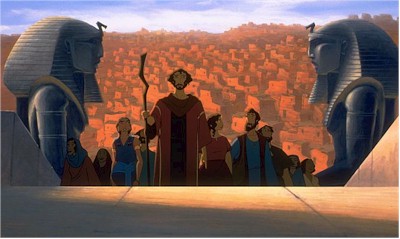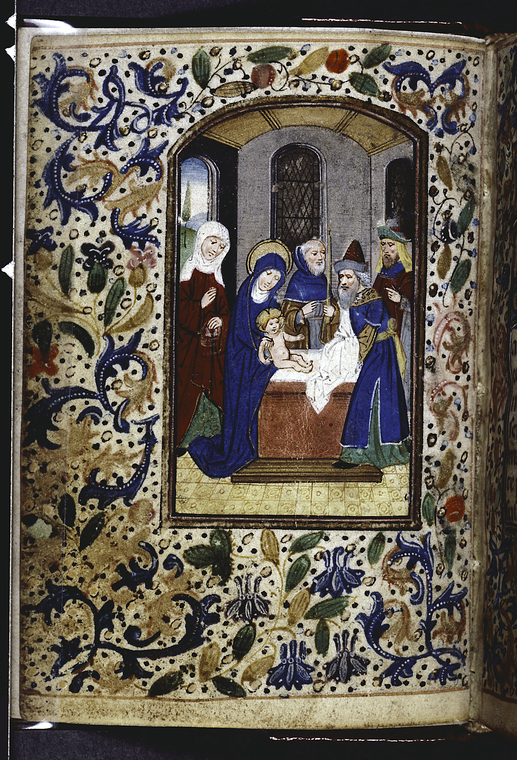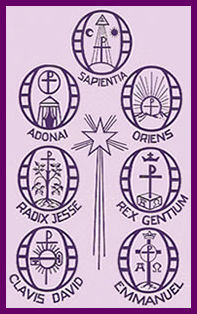
Anyone who has read their Bibles will surely be familiar with the following story:
And Pharaoh had drawn near, the sons of Yisrael lifted up their eyes, and look! The Mitzraim are marching after them, and they fear greatly. And the sons of Yisrael cry out to YHWH, and they say to Mosheh, "Is it because there are no graves in Mitzraim that you have taken us away to die in the wilderness? What is this you have done to us - to bring us out of Mitzraim? Is not this the word that we spoke to you in Mitzraim, saying, 'Let us alone that we may serve the Mitzraim?' because it is better for us to serve the Mitzraim than to die in the wilderness!" And Mosheh says to the people, "Do not fear! Stand firm and see the salvation of YHWH that He will do for you today; for the Mitzrim that you see today, you will no longer see again forever. YHWH will make war for you, and you can be still."YHWH says to Mosheh, "Why are you crying out to me? Speak to the sons of Israel that they might journey. And you - lift up your staff and stretch out your hand toward the sea and split it, and the sons of Yisrael will go into the midst of the sea on dry ground. And me - behold! I am about to harden the hearts of the Mitzraim and they will go in after them, and I will be honored over Pharaoh and over all his army, over his chariots, andover his horsemen. And Mitzraim will know I am YHWH when I have gained my honor over Pharaoh, his chariots, and his horsemen."
The angel of Elohim, who is going in the face of the camp of Yisrael, moves and goes behind them; and the column of the cloud moves from their face and stands behind them, and comes between the camp of Mitzraim and the camp of Yisrael; and there is the cloud and the darkness, and he lights up the night, and one camp had not come near the other all night. And Mosheh stretches out his hand toward the sea; and YHWH drives the sea back by a strong east wind all night, and makes the sea into dry ground, and the waters are split, and the sons of Yisrael go into the midst of the sea on dry ground, and the waters are for them a wall on their right and on their left. And the Mitzraim pursue and go after them - all the horses of Pharaoh, his chariots, and his horsemen - into the midst of the sea.And it happen in the morning watch that YHWH looks down on the camp of Mitzraim through the column of fire and of the cloud, and throws the camp of Mitzraim into confusion, and turns aside the wheels of their chariots - and they drive them with difficulty. And the Mitzri say, "Let us flee from the face of Yisrael, for YHWH is fighting for them against Mitzraim!" And YHWH says to Mosheh, "Stretch out your hand toward the sea, and waters will return on the Mitzraim, on their chariots, and on their horsemen."
And Mosheh stretches out his hand toward the sea, and the sea returns, at the turning of the morning, to its perennial state; and the Mitzraim are fleeing into it, and YHWH shakes off the Mitzraim in the midst of the seam, and the waters return and cover the chariots and the horsemen and all the army of Pharaoh who are coming after them into the sea - not so much as one of them remain!
In this post, we'll try to compare the Biblical account and its depictions in the movies. As everybody pretty much knows, the shadows of DeMille and Chuck Heston loom large over most depictions of Moses that came after the 1956 film was released. The influence is such that we are still subconsciously influenced by it; in many instances, we find that we are more familiar with Mr. DeMille than the Bible when reading the book of Exodus. Here, we will compare six Moses films in particular scene-by-scene:
A: The Ten Commandments: a 1923 silent version by Cecil B. DeMille, with Theodore Roberts as Moses.
B: The Ten Commandments: the 1956 remake/extension of the 1923 silent film, also directed by DeMille, with Charlton Heston in the lead role.
C: Moses: a 1995 TV miniseries (a part of the so-called
The Bible Collection) in two parts by Roger Young, starring Ben Kingsley.
D: The Prince of Egypt: a 1998 animated film produced and released by DreamWorks. Val Kilmer plays the title role.
E: The Ten Commandments (2006): Another TV series on the Exodus by Robert Dornhelm, with Dougray Scott portraying Moses.
F: The Ten Commandments (2007): A computer-animated film by John Stronach and Bill Boyce, starring Elliot Gould as the Lawgiver.

The aforementioned six films will henceforth be designated by their letters for purposes of convenience.
Without further ado, the step-by-step comparison.
1.) Egyptians Chasing (Exodus 14:6-9)
A: After a scene showing the Pharaoh and his soldiers riding on their chariots, we go back to the Israelites. Someone warns Joshua about the Egyptians, who then orders the Israelites to quickly disperse and run towards the sea. They do so, dismantling their tents in panic. The Egyptians follow after them, while we get to see some of the horses slipping on the sand dunes.
B: DeMille repeats very much the same formula for his 1956 version (minus the slipping horses) - only this time, the Israelites are apparently sitting quietly inside their tents. Here, Joshua spots the Egyptians himself and (with the help of sound!) sounds his horn as a warning signal.
C: The sons of Israel arrive at the seashore, when Moses receives a report that the Egyptians are half a day behind them. The 'settling' scene here is apparently merged with the parting of the sea (more on this later).
D: Moses and the people reach the shores, and we are shown some of the Israelites relaxing in some way, such as drinking water or sitting down. But all this is rather short-lived as the warning is sounded and the Egyptians appear, making the Hebrews run for their lives.
E: The Egyptian army spot the children of Israel in the middle of the desert and chase after them. The Israelites run away and eventually come by the shores of the sea, where Moses tells them to stop.
F: The people arrive at shore, where the pillar of cloud dissolves and Moses orders the people to camp. We then briefly cut to the Pharaoh, who regrets his decision to let the Israelites go and musters his army as a result, and then return to the Hebrews (the time now is around evening) who are now in panic because of the Egyptians.
All six films notably omit two things: specifically naming the place where the Israelites are camping (
Pi-hahiroth between Migdol and the sea, in front of Baal-zephon; cf. Exodus 14:2, 9), and God commanding Moses and the sons of Israel to camp there (Exodus 14:1-2), though
F does include Moses ordering the people. Only
A,
B, and
F actually show the Israelites settling and having tents set up before the Egyptians arrive.
The Bible does not specify how long the Israelites camped at Pi-hahiroth and how long the Egyptians took to reach them, therefore the filmmakers are very much at liberty here.
C and
D apparently show the Israelites arriving in the shore somewhere around late afternoon to early dusk.
E and
F show them arrive at daytime (with
F showing time pass by more clearly), while
A and
B are rather ambiguous (although the lighting for
A may indicate daytime).
2.) Complaining Israelites (Exodus 14:10-18)
A: The title cards quote Exodus 14:11a (from the King James Version). One Hebrew (called "Dathan, the discontented" in the introductions) apparently speaks for the whole people.
B: Similar to A; the complainer is also called Dathan (though now an Egyptian collaborator than an ex-slave). Moses in addition speaks the words of verse 13a in reply (in comparison to A, where his line - via title card - is based on Exodus 15:16).
C: As in A and B, a spokesperson - here named Zerah - complains to Moses (the camera then shows reaction shots of the people, now driven to silence, looking uneasy), himself having a look of uncertainty on his face, who merely tells them that the Lord has shown the way to them and that they would be delivered if they follow Him.
D: Transposed after the pillar of fire blocks the Egyptians. There is no spoken complaint; here the Israelites merely stare at Moses.
E: As soon as the Israelites realize that Moses has led them into a dead-end, three Israelites berate Moses, exclaiming that he has led them into a trap and questioning his leadership. An already frustrated Moses silences them and goes to the shore, where God asks him whether he knows His voice, whether he knows who He is, and whether Moses trusts Him. To all this Moses says a yes.
F: The Israelites realize that the Egyptians are in pursuit, and three people, with short, stocky Dathan (clearly modelled after DeMille's character!) with them moans to Moses that "we can't fight Pharaoh". The army eventually arrives and stop at the ridge. Moses gets the people up and ready to go while Pharaoh finally orders his troops to charge ("Where's your God now, Moses?").
Most of the films (with the notable exception of
E) take the dialogue of the Israelites almost verbatim from Exodus - the element common in five out of the above six films excluding
D is that a mouthpiece (either one man or a group of men) voices the worries and complaints of the sons of Israel, that this 'mouthpiece' is often antagonistic to Moses, and that the complainer/s would also later be instrumental in leading the Israelites to the sin of the Golden Calf!
3.) The Angel of God and the Pillar of Fire (Exodus 14:19-20)

A: Moses raises up his hand, and a wall of fire pops up on screen, blocking the Egyptians' path while the title cards quote the appropriate passage. Dathan, now getting ready to stone Moses (he has a large rock in his hand!) relents when the others alert him to the miracle.
B: Here DeMille uses animation for the pillar of fire - which materializes before the Egyptians. Moses then gets the Israelites going while Dathan continues to grumble.
C: The equivalent scene here is transposed to after the sea was split open since it was only then that the Egyptians arrive at the shores, in contrast to the other films. Pharaoh orders his men to charge forward, during which the "fire" - interpreted here as bolts of lightning - strike down, frightening the horses and thus causing a few chariots to crash down.
D: When the Egyptians arrive on the scene, the sky immediately grows dark, clouds gather, and lightning strikes - very much like at the beginning of a storm. Then the gigantic pillar of fire comes out from within the sea, flies overhead above the clouds and swoops down before the Pharaoh's army, blocking their path in a zigzag motion (note that the pillar here is quite tornado-ish in its movements).
E: After Moses' "yes" to God, a tornado (the pillar of cloud) forms from the sea and goes to where the Egyptians are, scattering dust and sand and obscuring their view of the Israelites, confusing them.
F: This film attempts to combine elements in all the aforementioned five films. Here the pillar of fire does not form a barrier between the Egyptians and the Israelites as in A, B and D; rather, it just plunks itself in front of the Egyptians, and when Pharaoh orders his men to get around the almost-immobile pillar, the pillar then shoots out lightning!
In five out of the six films, some incarnation of the pillar of fire is shown (
D is a notable exception because a fiery column would not really work in broad daylight). If we take the passage where the angel/pillar "
moved and went behind them" literally, then only
D and
E follow this detail.
As an aside, verse 20 contains an obscure statement: "
there is the cloud and the darkness, and he lights up the night, and one camp had not come near the other all night." Some have taken this to mean that both the pillar of cloud and fire were present at this time, and that it was the column of cloud that diverted the Egyptians, perhaps by disorienting them with a fog-like condition ("
the darkness"), while the column of fire lit up the Israelites' way - after all, the time was somewhere around evening/night. All six films had never taken consideration of this idea and only show one or the other, however (the only film that shows something closest to the idea is
E with its dust-gathering tornado/pillar).
 The propers of the feast (without the readings), from the Vatican Gelasian Sacramentary, aka Old Gelasian (Vatican, Bibliotheca Apostolica, Reg. lat. 316/Paris, B.N., 7193, 41-56):
The propers of the feast (without the readings), from the Vatican Gelasian Sacramentary, aka Old Gelasian (Vatican, Bibliotheca Apostolica, Reg. lat. 316/Paris, B.N., 7193, 41-56):





.jpg)






